Afghan Returnees from Iran are Welcomed by Heat, Hunger, and Uncertainty at Islam Qala Border
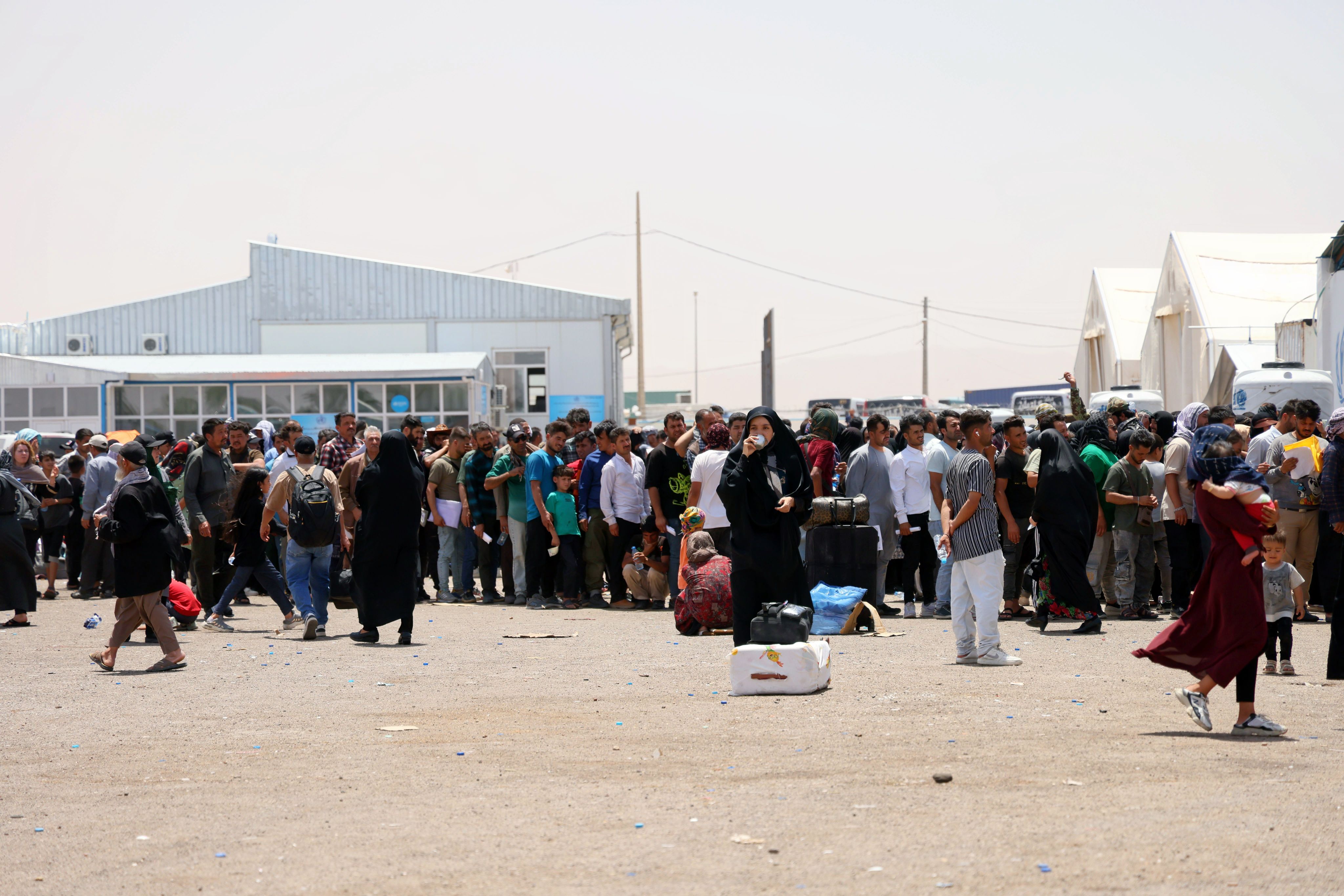
Typical weather conditions in Islam Qala during this season include strong winds, dust storms, and intense sunlight.
Typical weather conditions in Islam Qala during this season include strong winds, dust storms, and intense sunlight.
A mother sprinkles water on a scarf used as makeshift shade to help protect her children from the intense sun and heat.
A mother sprinkles water on a scarf used as makeshift shade to help protect her children from the intense sun and heat.
Islam Qala, Herat, Afghanistan – July 2025
Under the burning sun, families use whatever they can find to shield their children. A mother wets a scarf to keep it cool. A boy knots a strip of cloth to cast a narrow shadow over his family. A sister stretches a handkerchief over her sleeping brother, tying its ends to their luggage to protect him from the sun.
Ahead of a deadline of 6 July, imposed by the Iranian authorities, thousands of Afghans have returned to their homeland from Iran in recent days, arriving exhausted, confused and uncertain about the future. Lacking proper shelter, medical care, or the means to connect with families, anxiety abounds. Some are being detained and deported without even the chance to inform their loved ones.
“I didn’t know how to contact my family, or how to find them,” says Sharifa, a 41-year-old mother who crossed with her 13-year-old daughter after being separated from her husband and sons. “In Iran, my daughter was denied school this year because of our refugee status, and that broke our hearts. But crossing the border brought even more fear—we were lost and alone.”
Then, cutting through the disorientation, Sharifa heard a loudspeaker announcement: “You can make free calls to your family here.” Sharifa duly made her way to the Help Desk, provided by World Vision Afghanistan, picked up the phone, and dialled her sister. After a few moments, her eyes welled with tears—this time, with relief. “The call helped us reconnect and know how to get to our home,” she said.
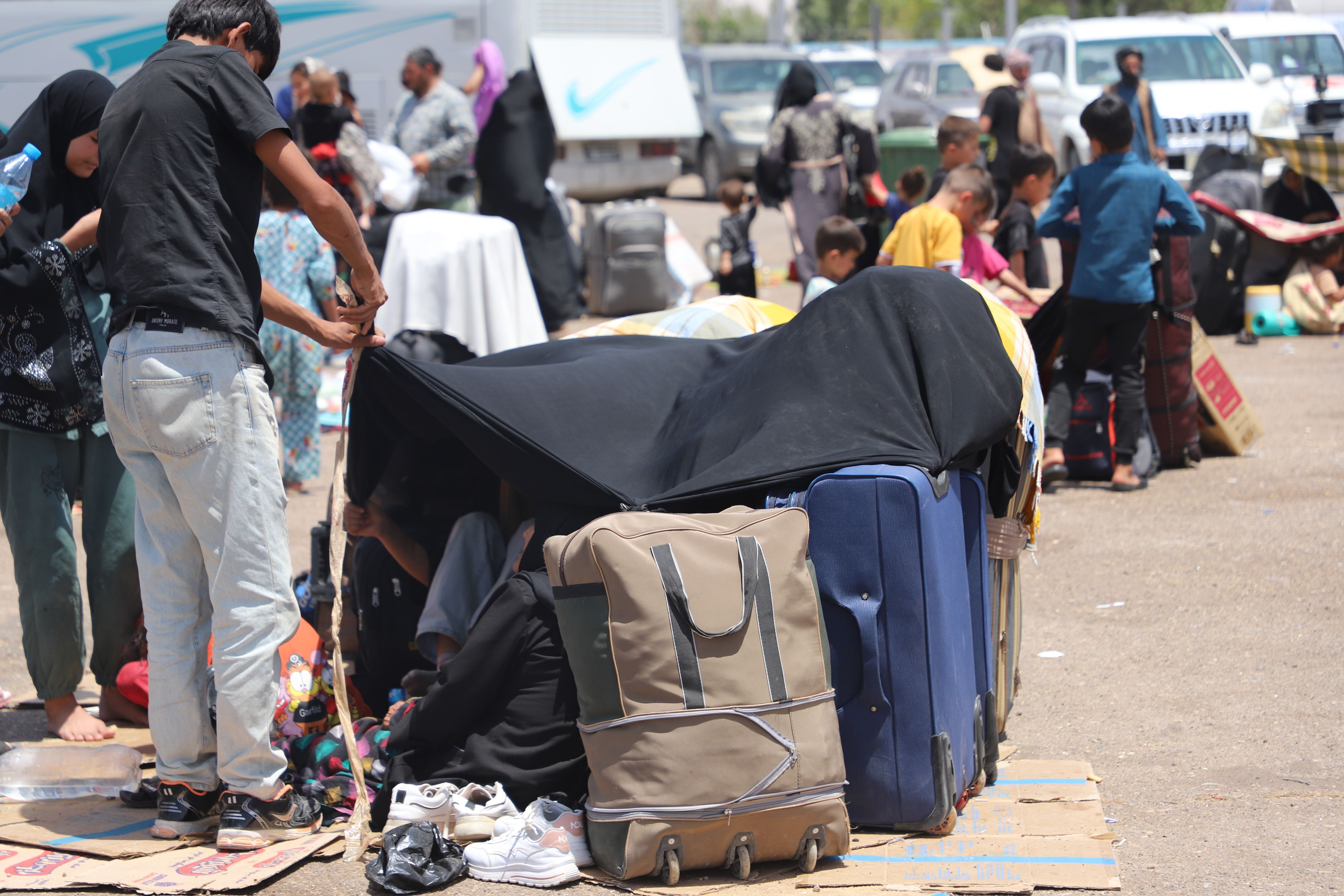
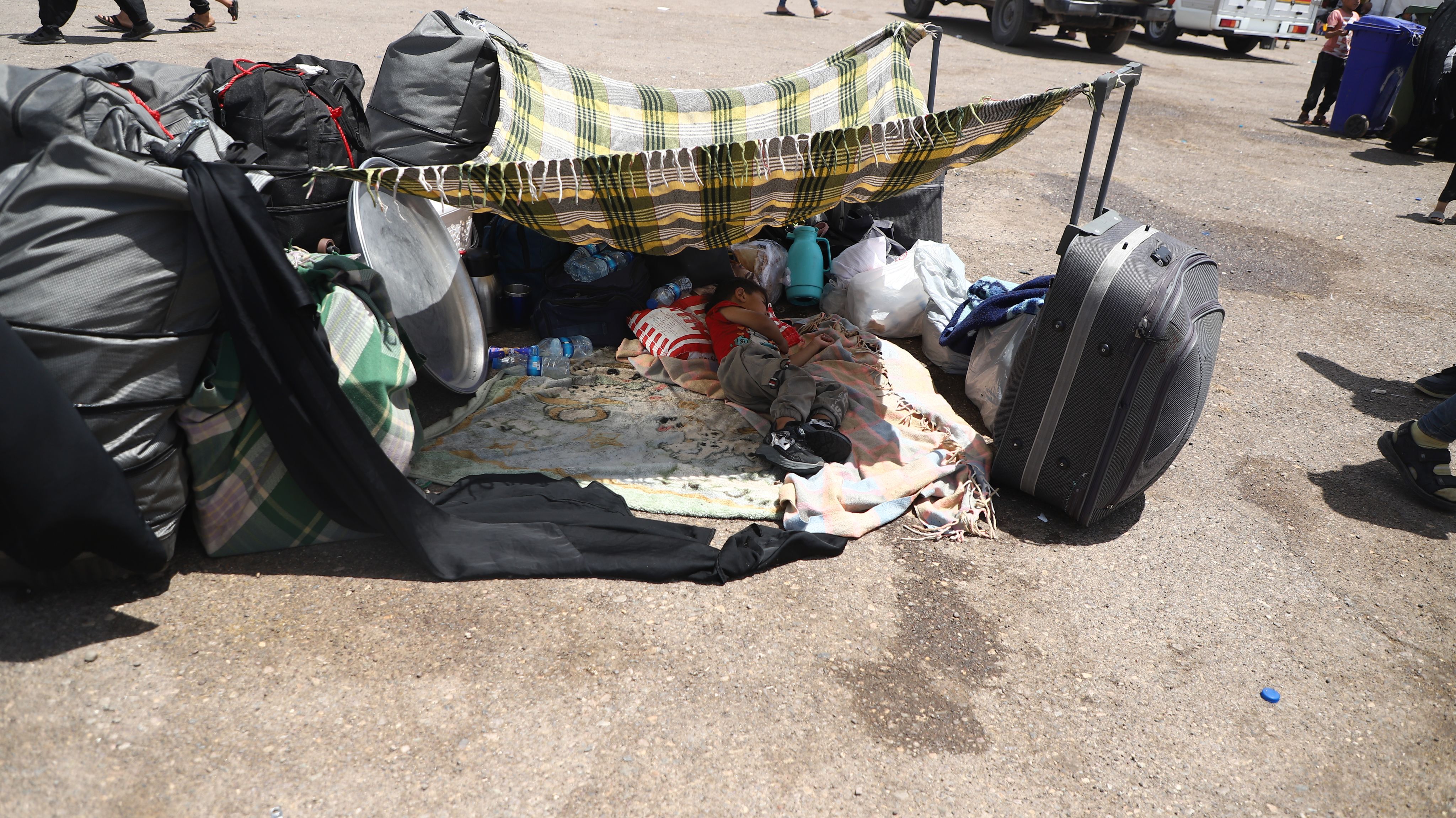
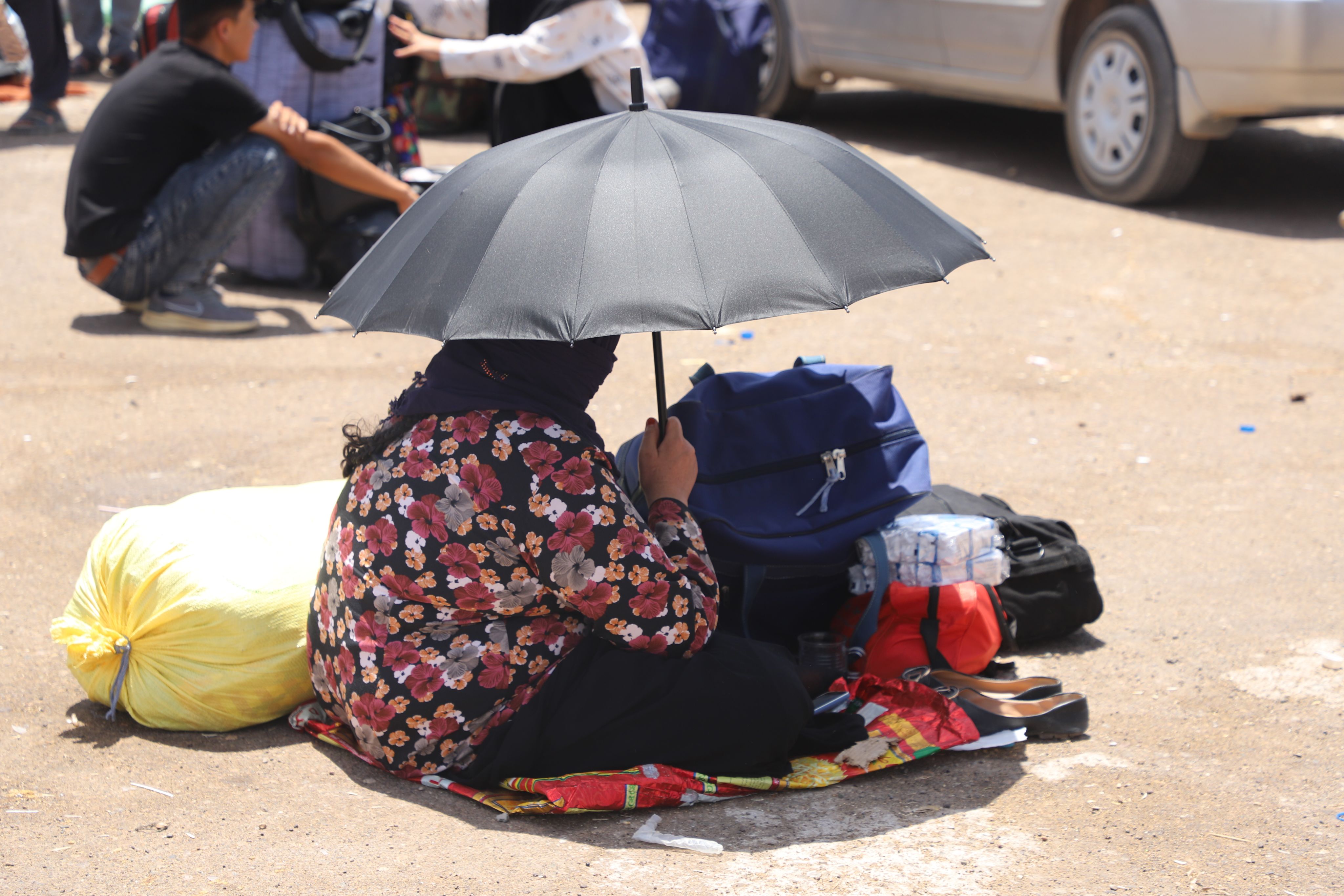
Yet their worries remain, “We don’t have a house or land here,” she says. “We may stay in a shared house with my brother-in-law, but that’s only temporary. We need shelter—and I don’t know how we’ll find one.”
Sharifa’s experience is echoed by many others. Rahim and Hanifa, a couple who spent three years in Iran with their children, arrived at the camp unsure of what the future holds. “We are wanderers,” Rahim said. “What we need most is a place to live and a job to survive.” Shortly after their arrival, Hanifa lost sight of her husband and children in the crowded camp. “I was lost and panicking,” she said. “But I went to the call centre, made a call—and within minutes, I found them.” The family now hopes to resettle in Ghazni province.
Other returnees are vulnerable to misinformation and exploitation. Two sisters, Amina* and Fatima*, travelling alone, were approached by a man who offered to help. He took their documents and misled them with false promises.
“They were scared and in tears,” said one staff member who witnessed the scene. “But when they heard the announcement about the free calls, they ran over and asked to contact their brother.” After reconnecting with their family, the sisters were also guided by the help desk to the right support services. “Their faces changed,” the staffer added, “from fear to hope.” They also confronted the man and retrieved their documents—something that may not have been possible without the timely intervention. Their family later called back to thank the Help Desk for their support, saying it prevented further harm.
Single individuals who have crossed the border and completed registration walk toward the exit gate of the Islam Qala camp.
Single individuals who have crossed the border and completed registration walk toward the exit gate of the Islam Qala camp.
A young child sleeps in the temporary shade created by his sister using a handkerchief and their luggage.
A young child sleeps in the temporary shade created by his sister using a handkerchief and their luggage.
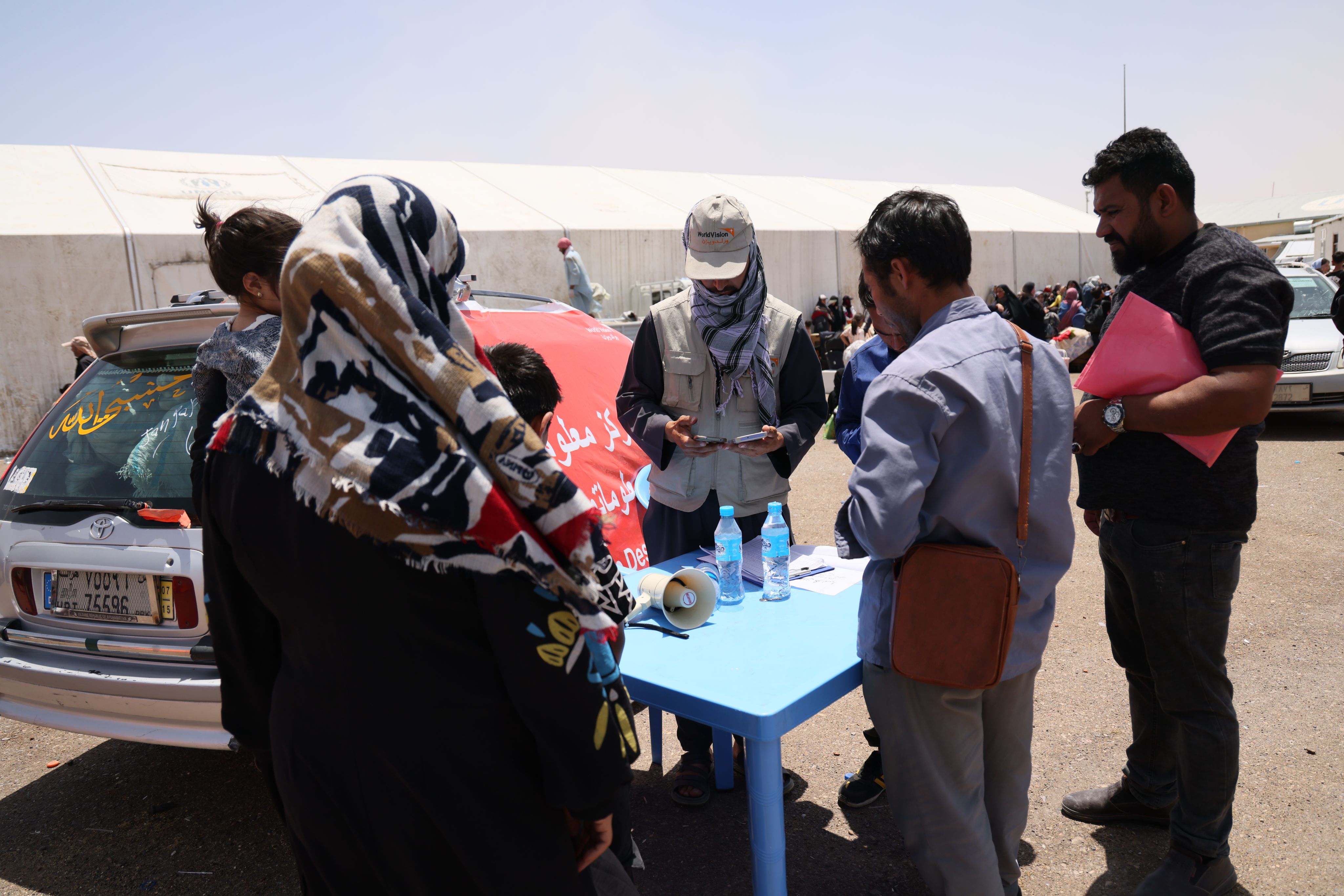
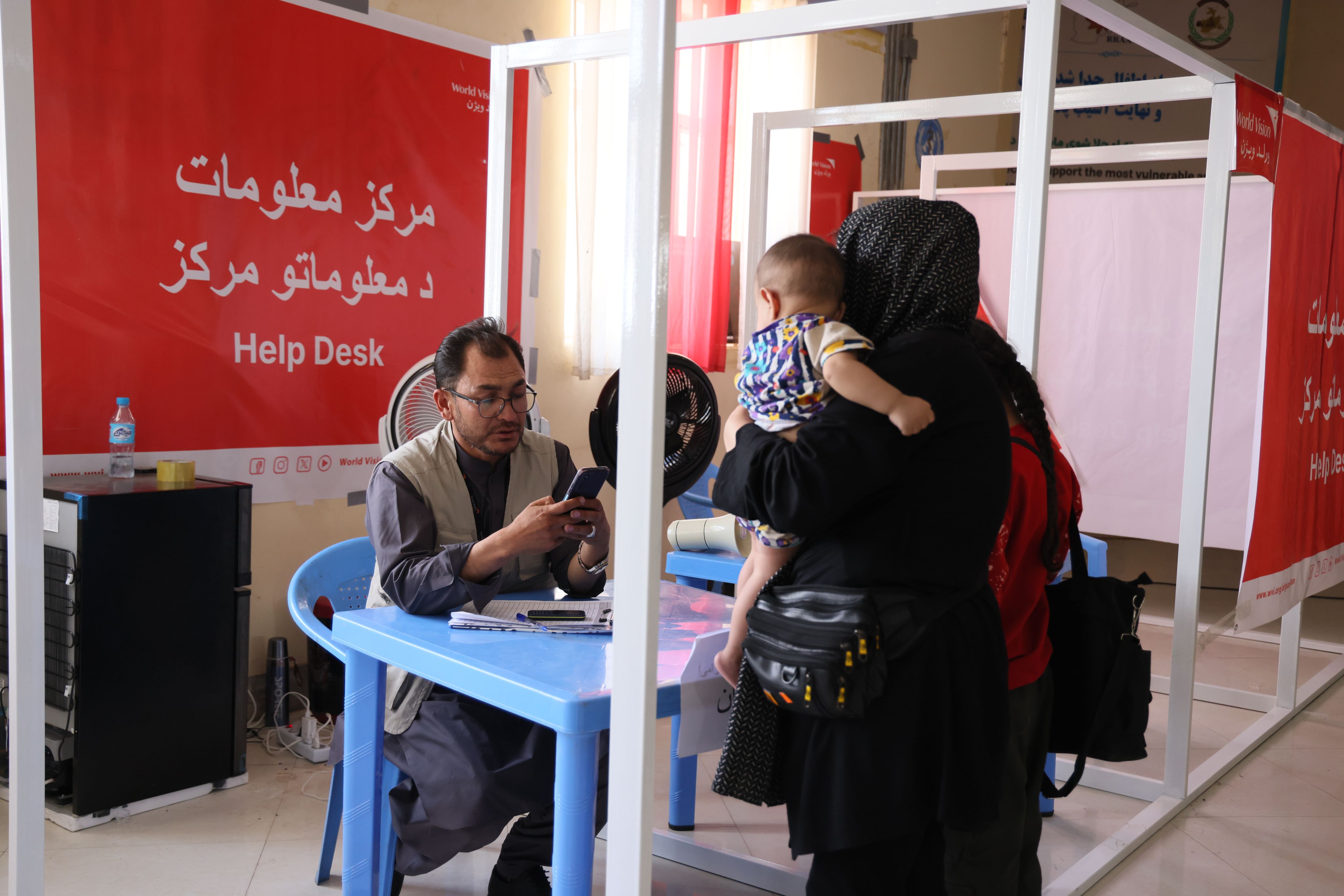
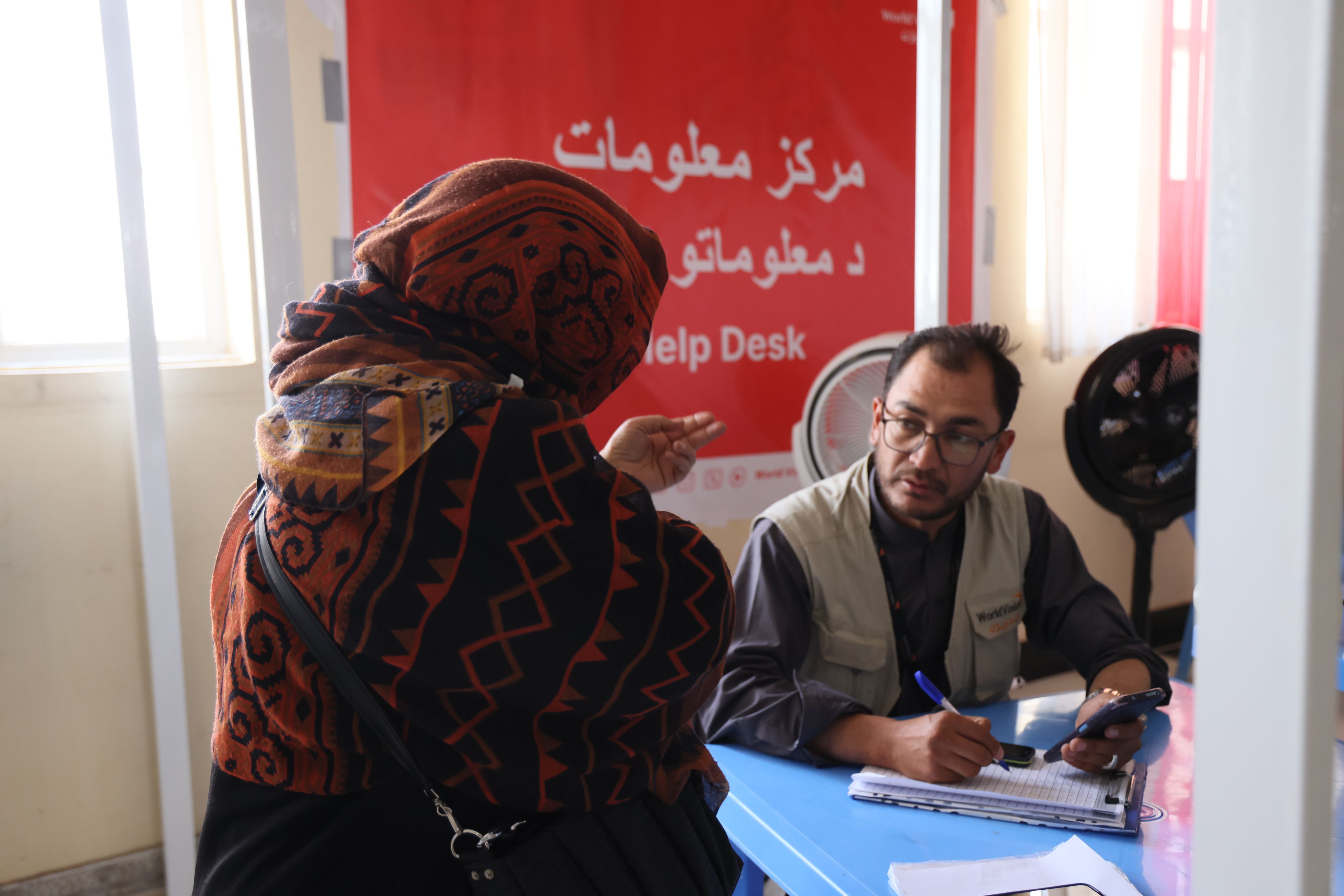
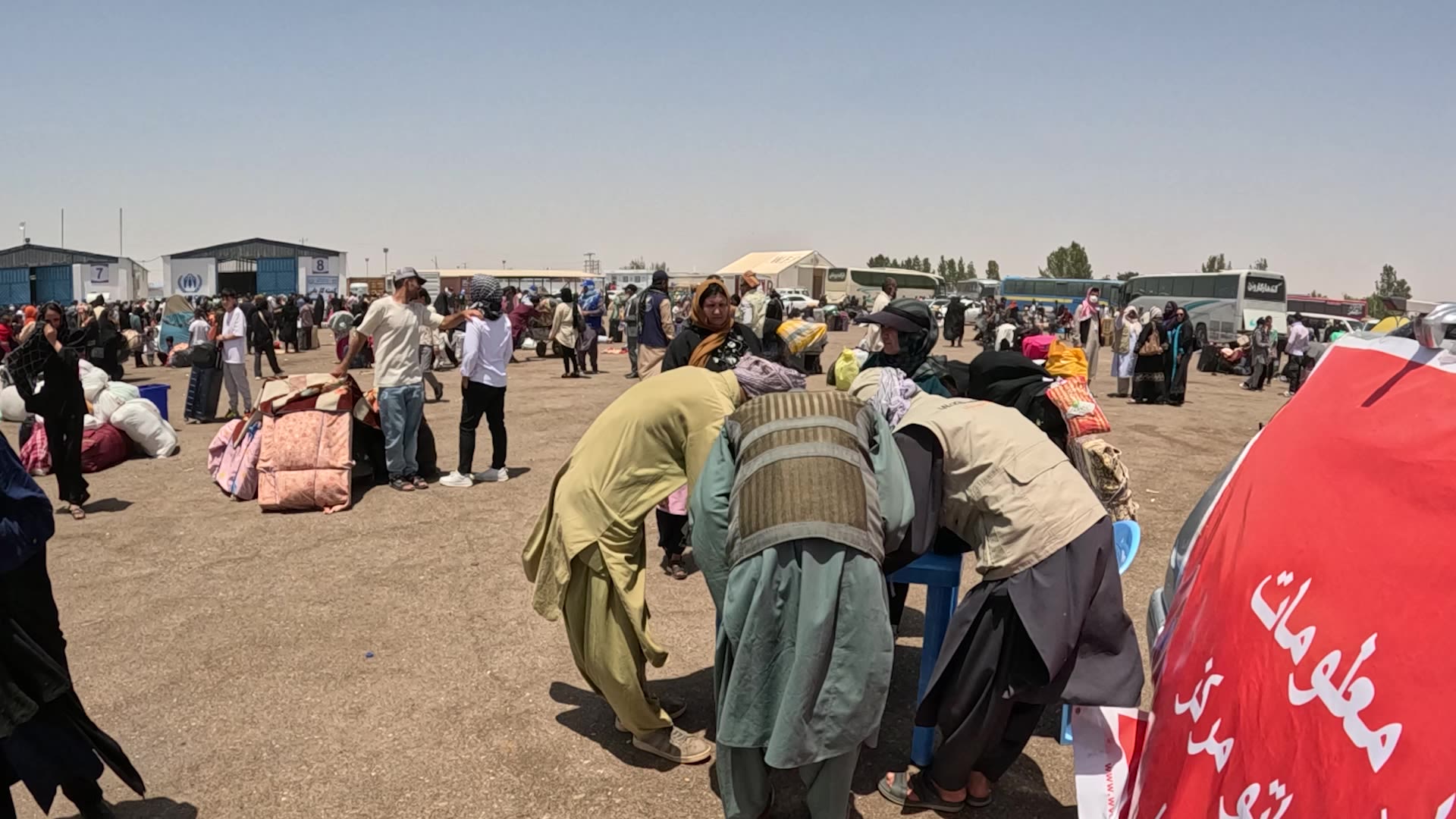
For others, the lack of documentation—some of which they claim are defaced or confiscated or lost during deportation—has meant being excluded from some basic services. In one case, a family arrived at the border with a sick member and no identification at all. The Help Desk provided internet access so they could reach out via messaging apps. Their relatives quickly sent scanned IDs, allowing them to begin the registration process. “It was like giving them their identity back,” a staff member said.
In the chaos of forced returns, one truth stands out: the ability to access timely information and reconnect with loved ones is a vital form of humanitarian assistance. For many families, a simple phone call marks the first step toward regaining control, dignity, and hope for the future.
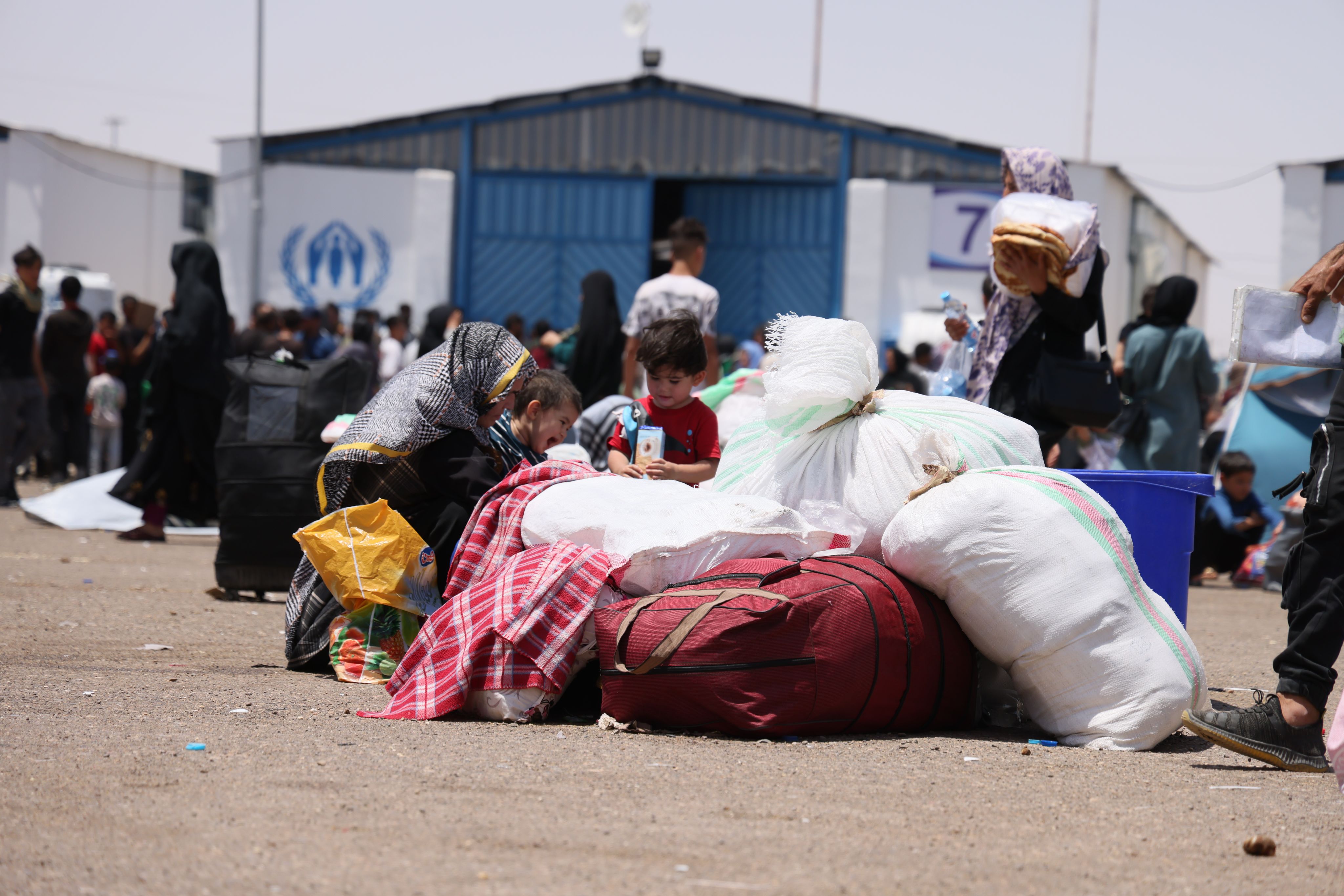
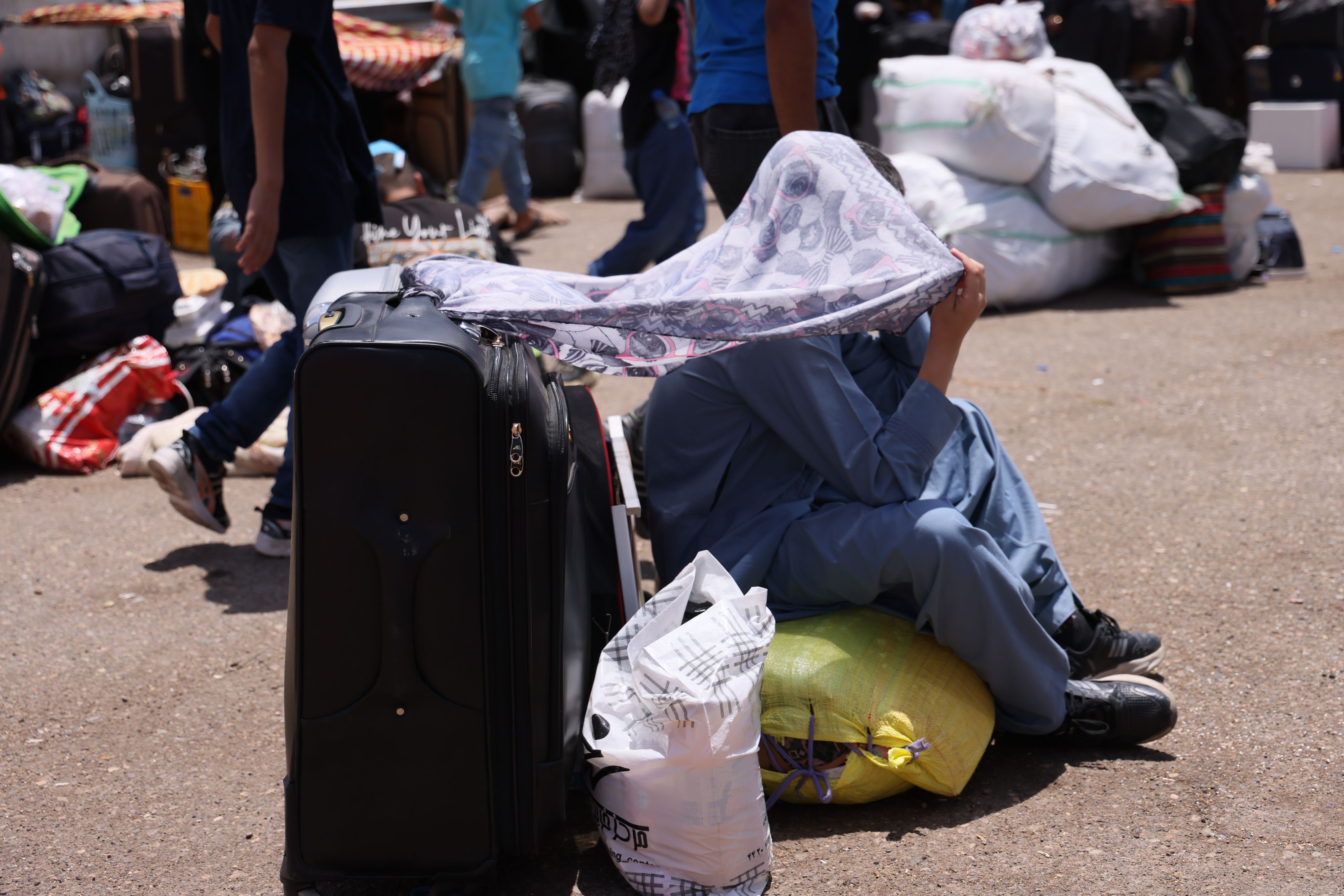
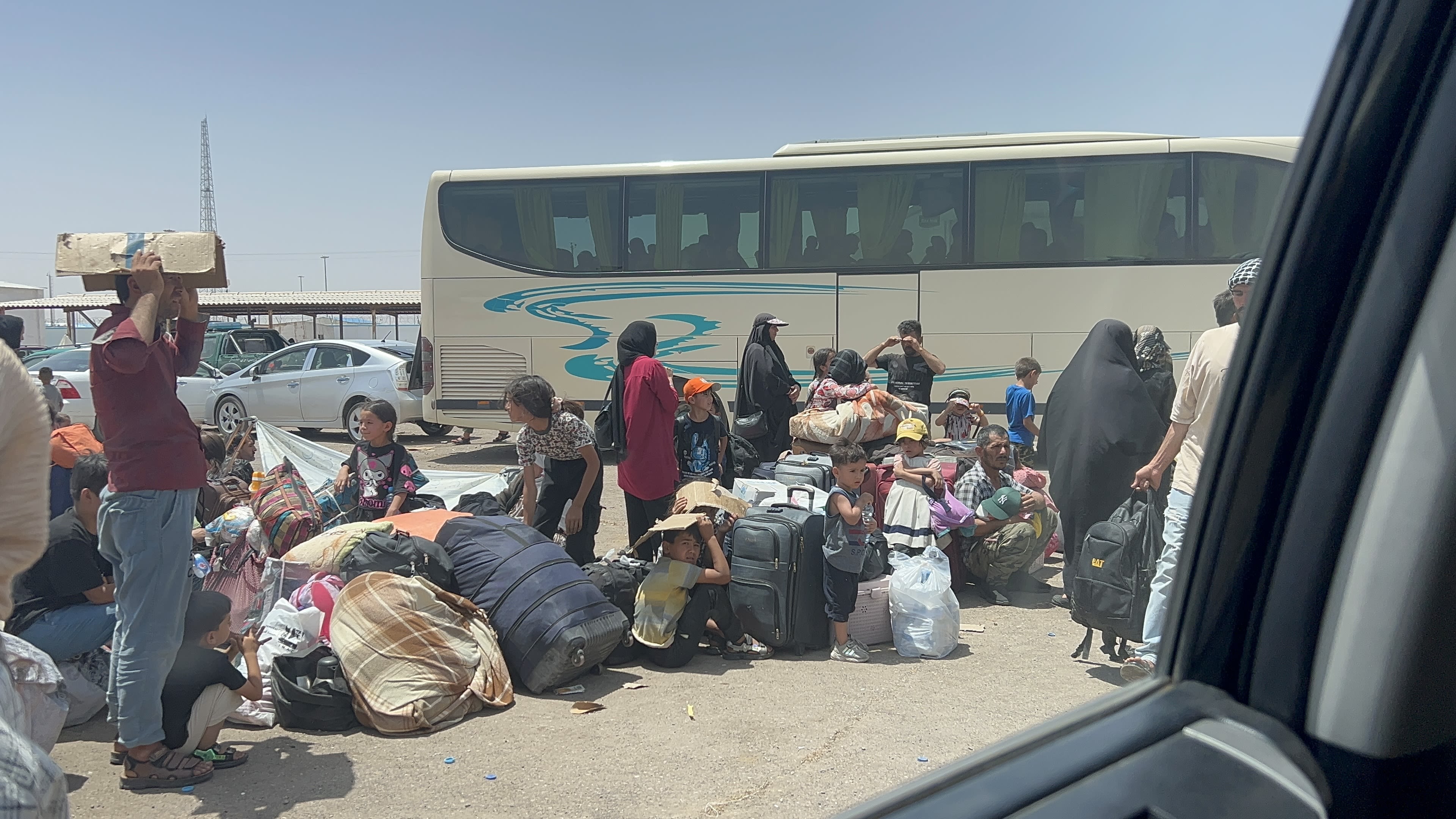
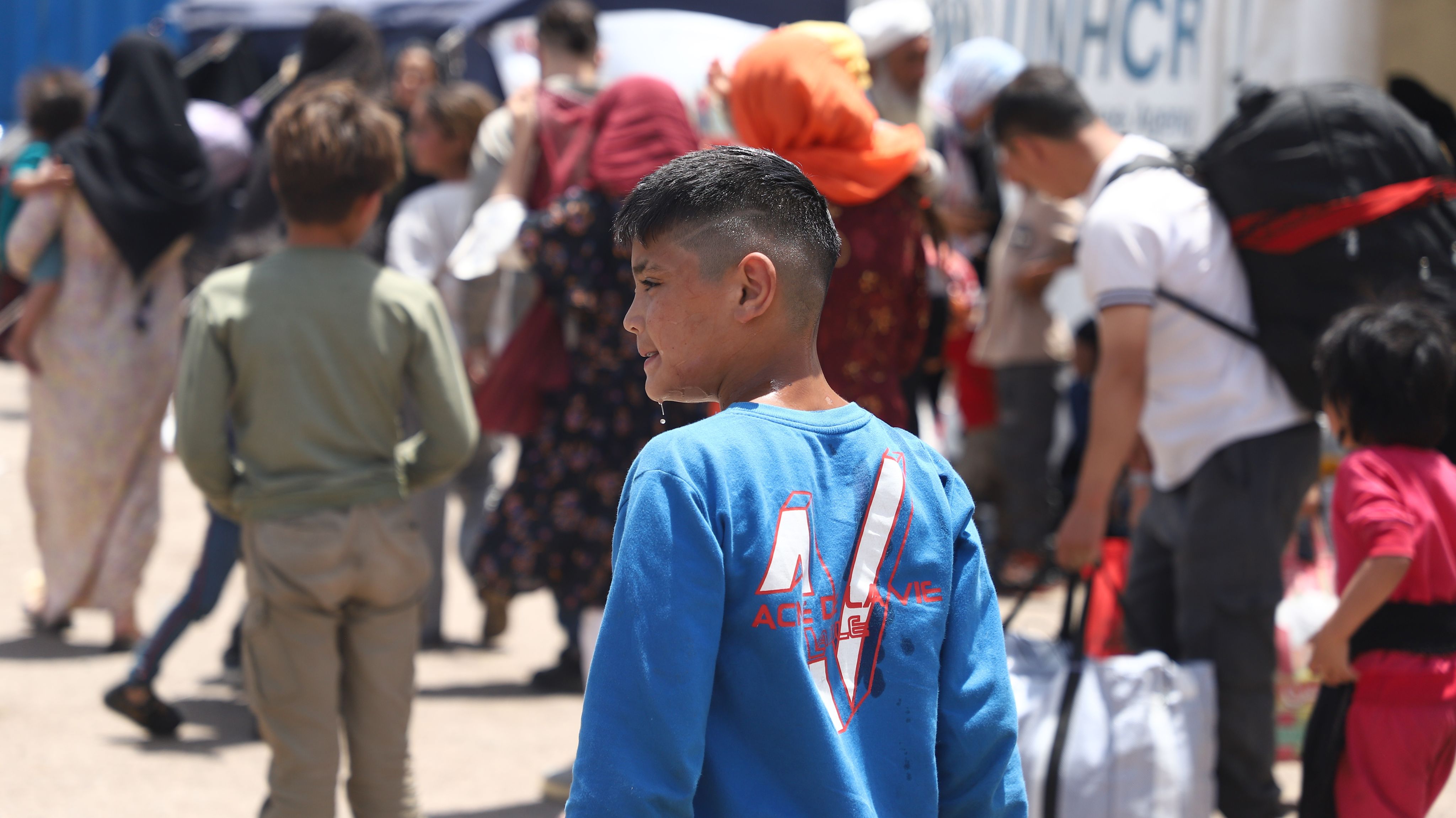
Thamindri De Silva, National Director of World Vision Afghanistan, speaks with an official from a partner organisation at the Islam Qala border.
Thamindri De Silva, National Director of World Vision Afghanistan, speaks with an official from a partner organisation at the Islam Qala border.
A returnee family brought a plant with them from Iran, carrying it alongside their luggage as they crossed the border into Afghanistan.
A returnee family brought a plant with them from Iran, carrying it alongside their luggage as they crossed the border into Afghanistan.
Thamindri de Silva, National Director of World Vision Afghanistan, described what she witnessed during her recent visit: “The needs are vast, and while services are available, they are simply not enough to provide adequate support. My heart goes out to the children. I’ve seen many sitting on pieces of cardboard, hot, thirsty, hungry, and with nowhere to go.”
She added, “Even though many people are being transported onward, a lot of them don’t know where they’re going. I’ve spoken with girls who told me their families back home have no way to support them—and they themselves have no means to get there.”
To meet this urgent need of returnees at the border, World Vision Afghanistan has set up a Help Desk and Call Centre operating daily from 7 a.m. to midnight. The centre provides vital support, including clear guidance on accessing essential services like healthcare, food, water, and sanitation, free national and international calls to help families reconnect, and internet access to enable contact through social media and messaging platforms.
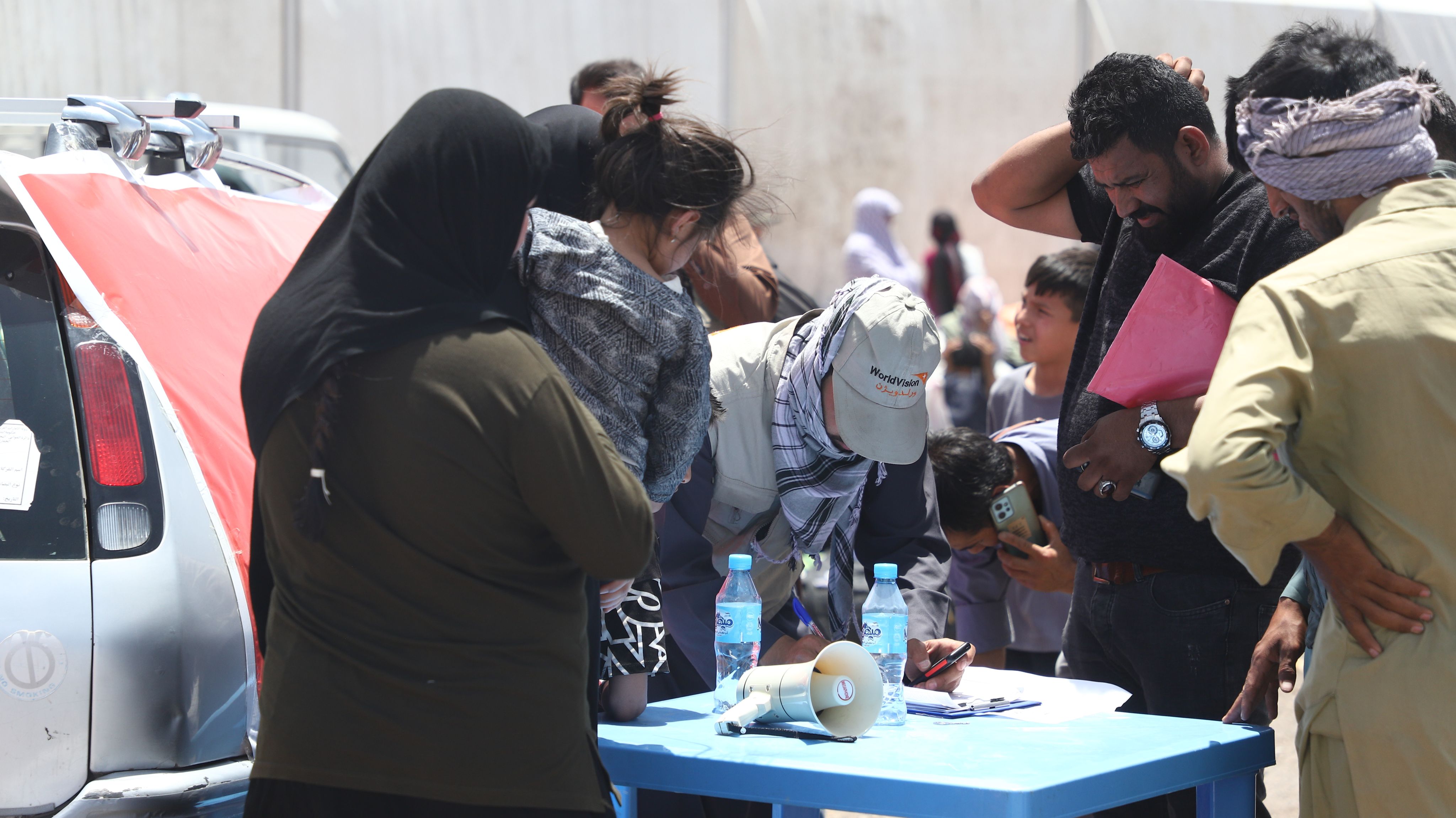
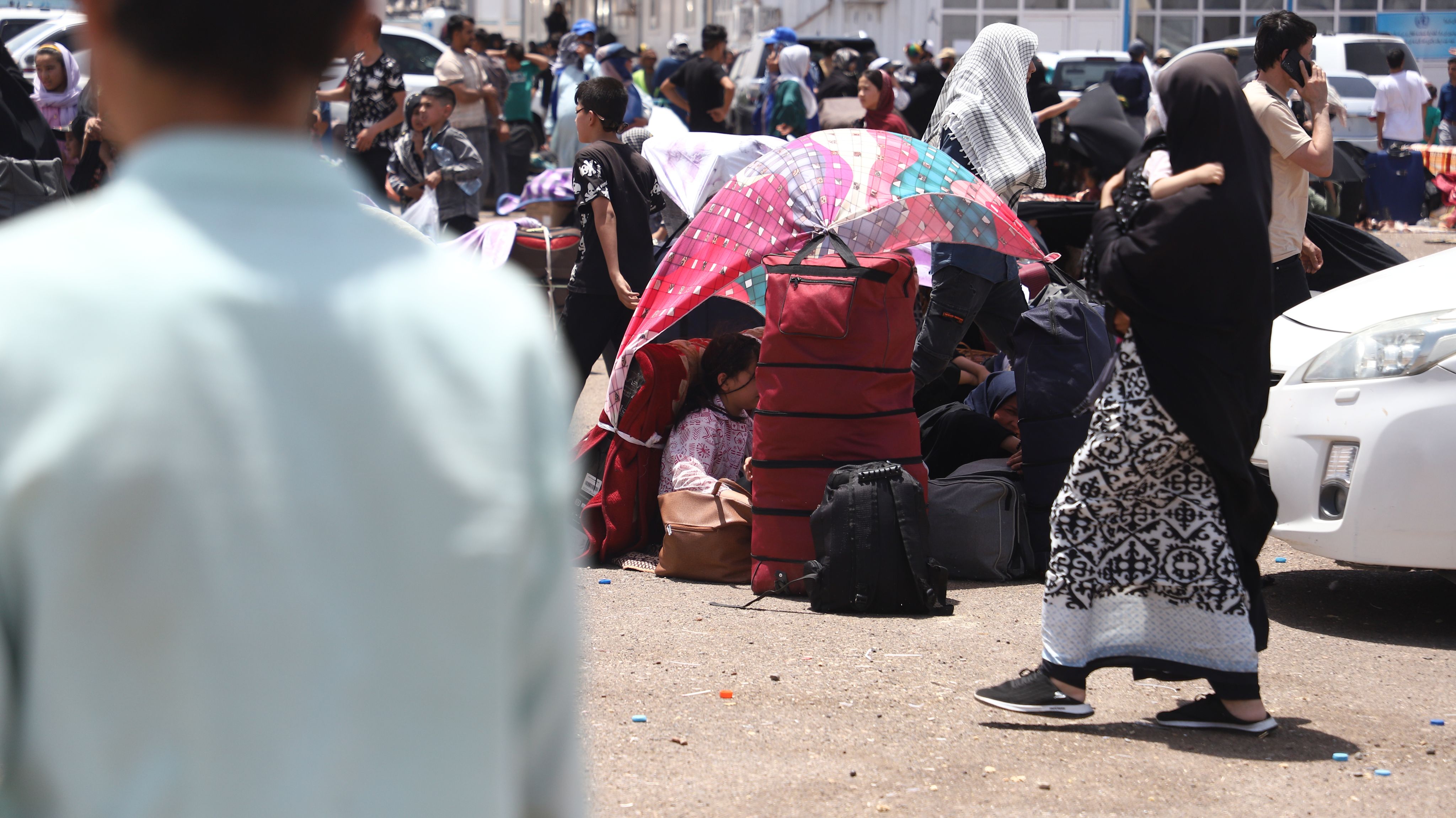
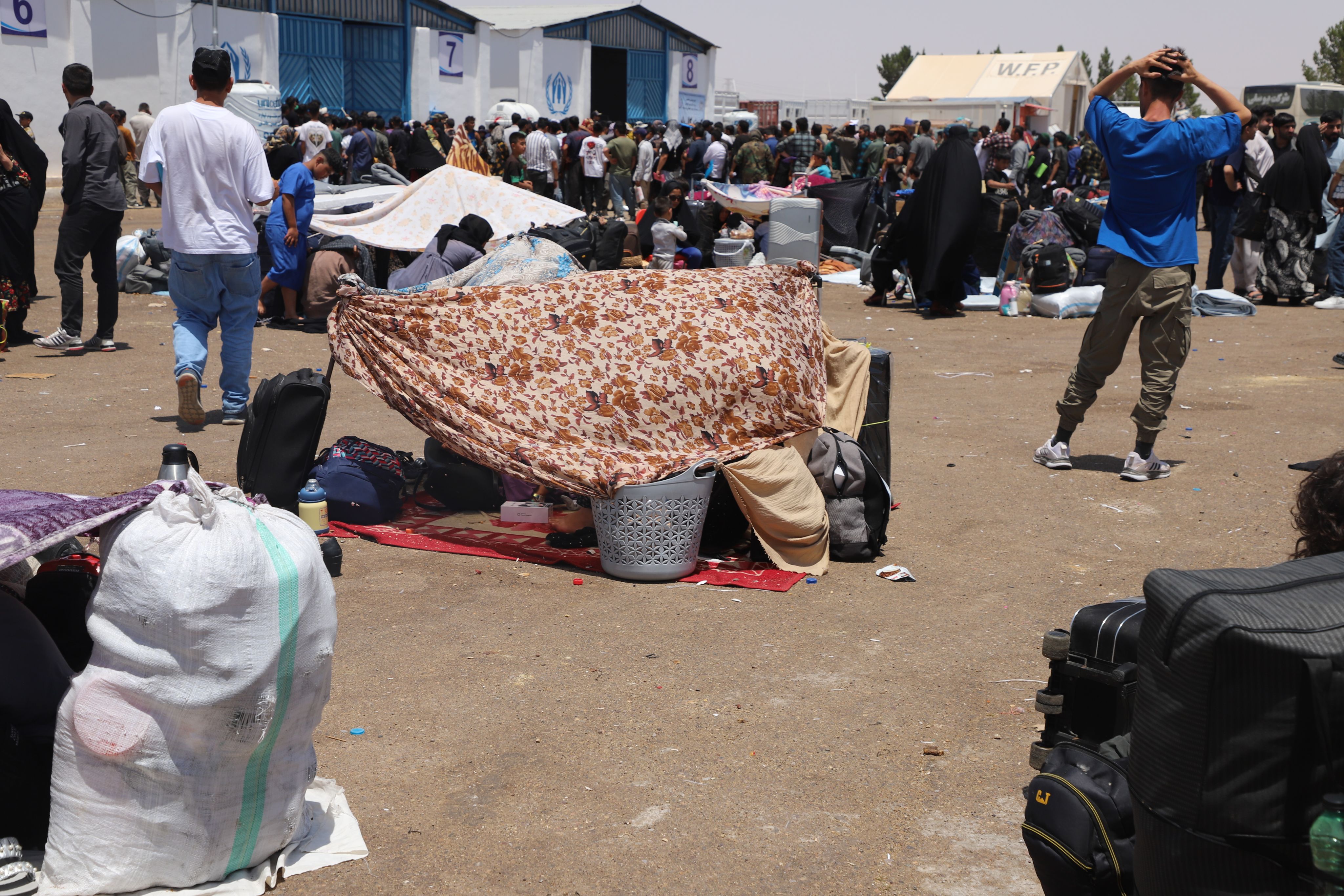
For most returnees, though, the situation remains precarious, even dangerous. In the longer term, they need not only safety but sustainable solutions: shelter, livelihoods, access to basic services psychosocial support, and food remain the most urgent priorities.
For more than 40 years, Iran has been a refuge for Afghans escaping conflict, instability, and economic hardship and, for far longer, people from what is today Afghanistan have travelled to pursue adequate livelihoods in what is today Iran. Today, this ancient story appears to be ending. Since March, 640,000 Afghans have returned—366,000 of them deported. In just days, any of the remaining 4 million Afghans in Iran will lose legal status, compounding the risks of mistreatment in Iran, a new humanitarian emergency in Afghanistan.
Urgent resources are needed to meet basic needs and ensure families can return safely and with dignity.
Using whatever means available, families try to shield themselves and their children from the intense heat in the camp.
Using whatever means available, families try to shield themselves and their children from the intense heat in the camp.


